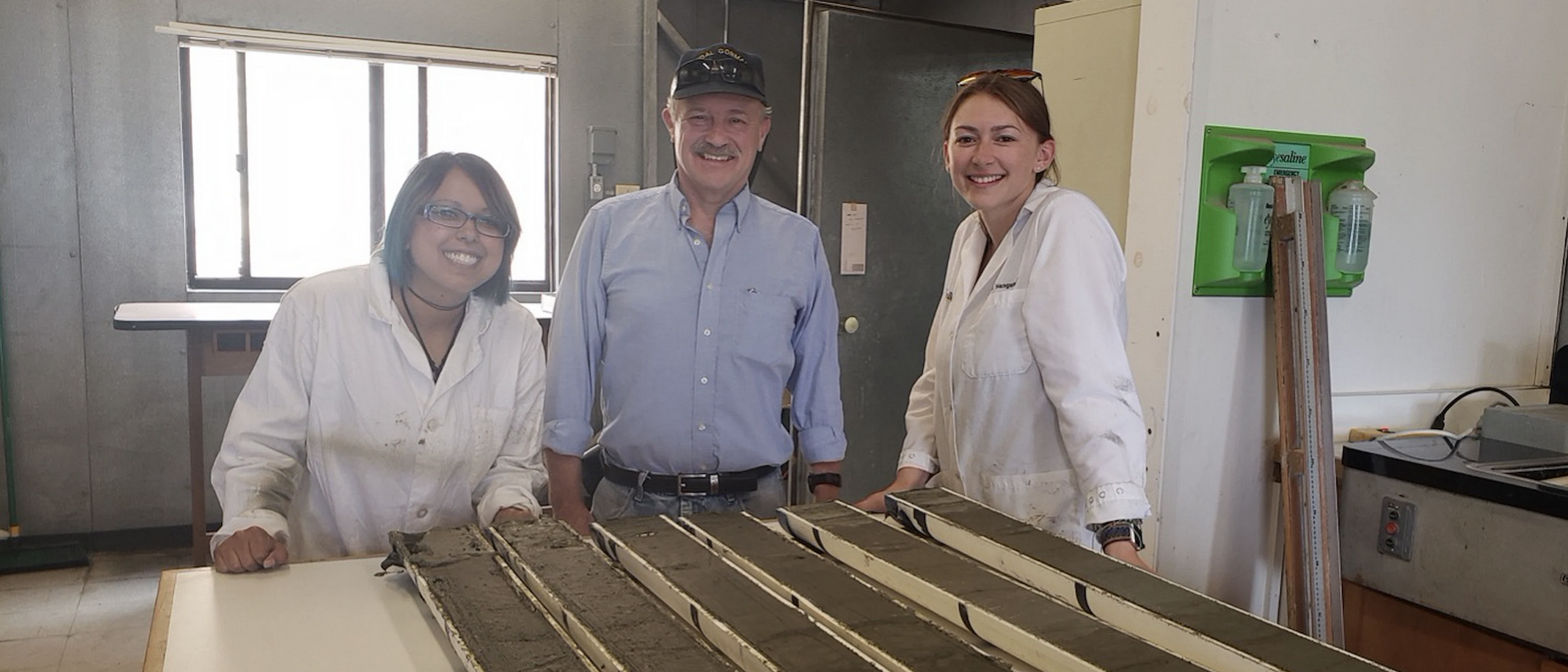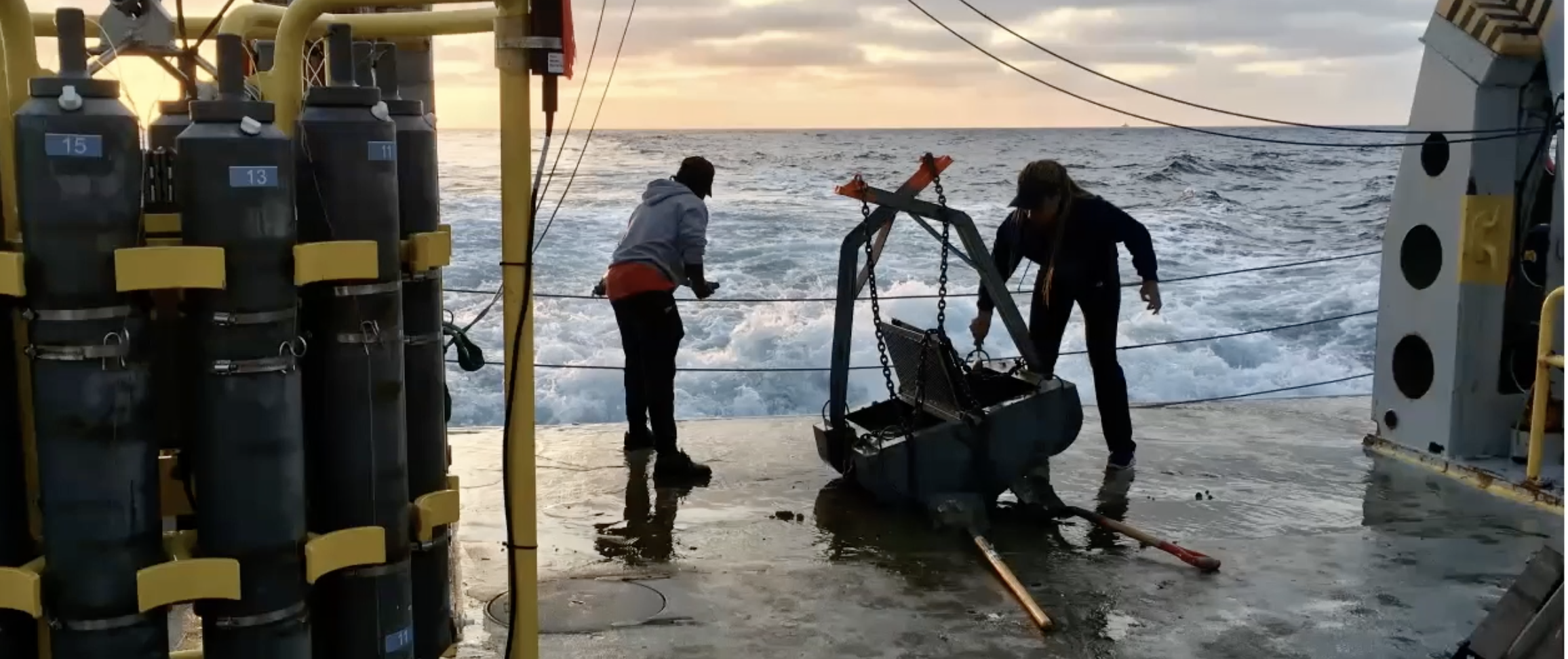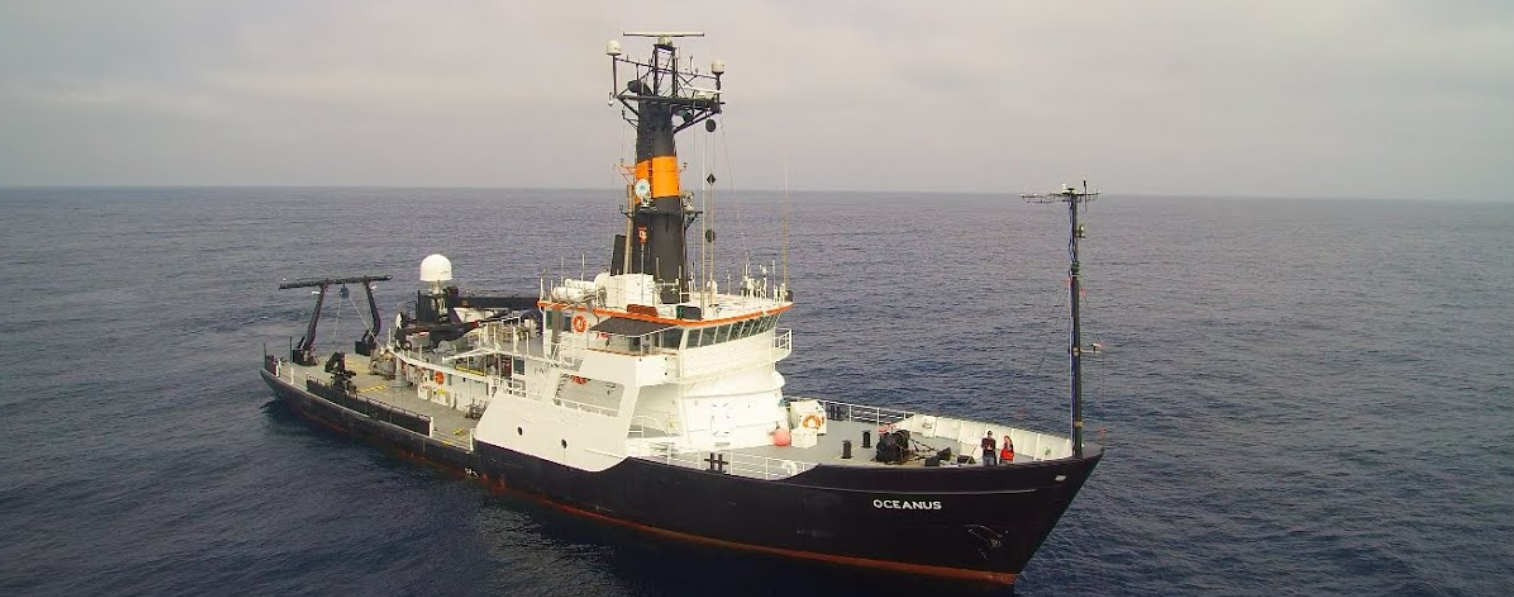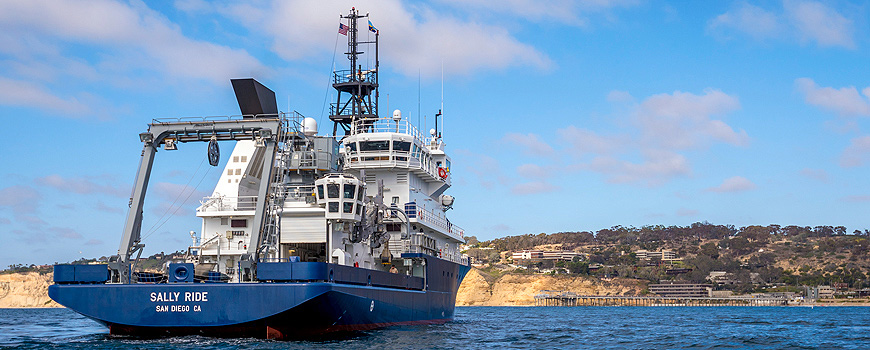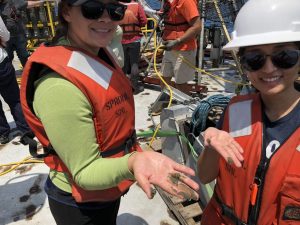Oceanographic shipboard and lab research for diverse students: Experiential learning as a gateway to geoscience careers
We propose to establish an inter-institutional, co-curricular and extra-curricular, participatory field-based oceanographic research program to inspire and train diverse undergraduate students and pre-service teachers to pursue careers in the geo-sciences.
The research is based on established, interdisciplinary, NSF funded investigations that have two primary goals:
A) to investigate the factors that affect near-offshore marine sedimentation in the geographically unique, tectonically-active southern California continental margin (California Continental Borderland); and
B) to understand the biological and ecological relationships between modern benthic foraminifera (“shelled” protists) and their environment in order to develop a better modern analog to use fossil foraminifera to assess past climate change.
- Full presentation (PDF)
To address these goals, we will conduct a program of shipboard research to collect oceanographic data and geologic samples in sites of variable water depth (0-1000 m) and distance (shallow bay-90 nautical miles) from shore using advanced technologies and oceanographic research vessels operated by the Scripps Institution of Oceanography (SIO). While some of the follow up analyses of shipboard oceanographic data and geologic samples (sediment samples, foraminifera) will be conducted using state-of-the-art analytical instrumentation available at SIO, USD, and CSUB, we will also employ and develop “easy to teach” laboratory methodologies which only require basic high-school lab science equipment.
Over the three-year program period, we will engage a diverse population of at least 90 undergraduates (majors and non-majors), 6 pre-service teachers, and a few pre-undergraduates in the experiential learning research program through a) research cruise participation, b) the significant integration (4-8 lab periods) of the research program into at least six regular courses [two per year] (co-curricular), and/or c) full-time summer research internships (extra curricular) for at least 10 students. This partnership with SIO will provide a unique opportunity for hands-on training using sophisticated state-of-the art oceanographic instrumentation and analytical equipment. Students will interact with a team of geoscientists and graduate students from multiple institutions, learn to apply the scientific method through active participation in shipboard and lab research, and present their results at scientific conferences and/or contribute to scientific publications. Through displays, posters and presentations at local schools and organizations, students will also be involved in educational community outreach, conveying the excitement, importance and relevance of marine research.
This research/educational outreach program will integrate diverse students from a private urban coastal (USD) campus with students from a public rural inland (CSUB) campus. USD is a medium sized comprehensive institution. Located near the border with Mexico, and inside a large urban city, it is in a region with high cultural and ethnic diversity. There are currently approximately 5600 undergraduate students, 33% who are non-white and 55% who are female. USD’s dedicated Office of Undergraduate Research provides support to students and faculty engaged in meaningful research activities in all disciplines. USD’s School of Leadership and Education Sciences includes and innovative curricula including credential, MS and Ph.D. programs. CSUB, located about 4 hours from San Diego, serves a diverse population of students, including rural, low-income minority students (43% of student body is Hispanic; 7% is black). Experiential learning in marine research would be a novel recruitment incentive for the desert-based University.
USD’s Environmental and Ocean Sciences Department is well-suited to successfully implement this program. From 2000-2012, P.I. Gray and USD colleagues in collaboration with co-P.I. Rathburn and ISU developed and implemented a successful program of co-curricular shipboard education using SIO research vessels. This program builds on these experiences by expanding the scope of the educational program, increasing the diversity of participants, and including data collection that contributes directly to publishable, externally funded research.
In addition to research engagement, we will develop and test transferable undergraduate or secondary school curricular modules based on the program, including making sample material available to educators by request to the SIO Geological Collections. Program assessment and educational research will evaluate whether this program has been effective for increasing the number and diversity of students entering geoscience majors, pursuing post-baccalaureate degrees in geoscience, and/or entering the geoscience workforce pipeline. In addition, if possible, we will assess how well these experiences prepared students for graduate school and careers post-graduation.
Oceanographic research offers an exciting blend of interdisciplinary learning opportunities for experiential education using advanced technologies in memorable field and lab settings. This project is based on a long-term partnership in marine science education at sea between PIs Gray and Rathburn, in collaboration with SIO, and contributes to Rathburn’s interdisciplinary, NSF-funded research off the San Diego coast. Students will be actively participating in all aspects of science, from field collections of samples to presentation and publication of results, and community outreach.

